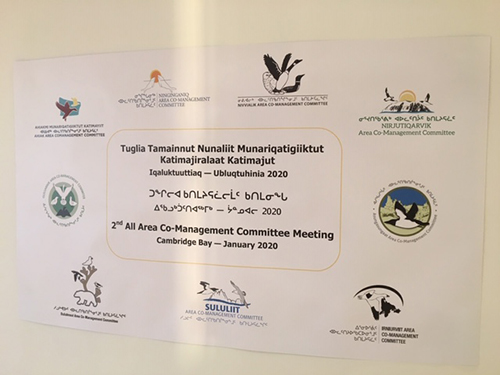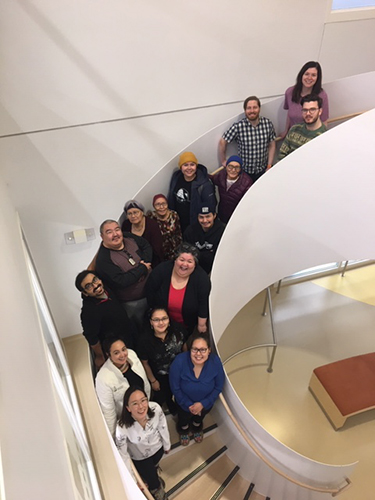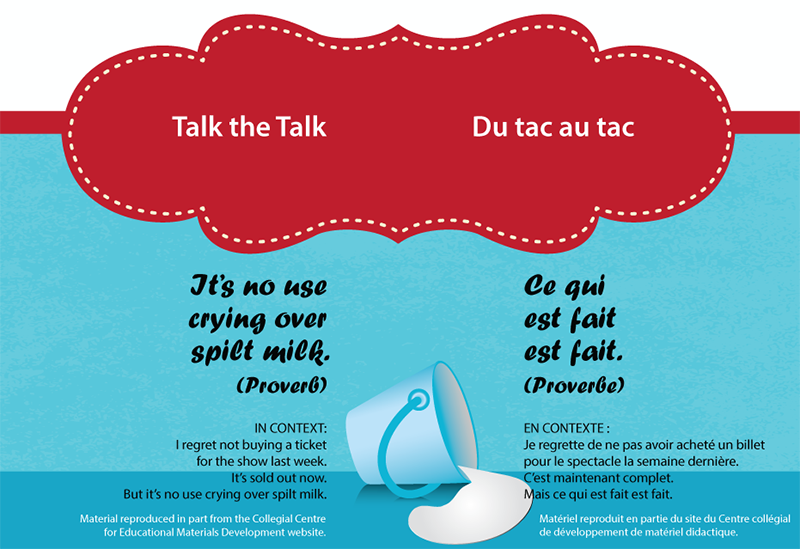- FROM THE TOP
- POLAR in the news
- Antarctic research: Why it matters and how POLAR is involved
- Canadian High Arctic Research Station campus events
- POLAR’S PEOPLE
- POLAR’s Social Committee
- LEARNING AND PERFORMANCE
- Inuinnaqtun/Inuktitut word of the week - nayak | ᓇᔭᒃ
- Are you ready to Talk the Talk?
- UPDATES
- Key outcomes from Senior Management Committee
- POLAR Events Calendar
- WORKPLACE NOTICES
- Survey Monkey reminder
FROM THE TOP
POLAR in the news
Click on the headlines below to read articles mentioning POLAR:
Methods.blog - Methods behind the Madness: Ecology at the Poles (January 28, 2020)
UCalgary News - UCalgary researchers host workshop for northern Indigenous hunters (February 4, 2020)
Antarctic research: Why it matters and how POLAR is involved
Part 1: Why does the Antarctic matter? Using science to understand global patterns to benefit Canada
POLAR plays a key role in advancing Canadian interests in Antarctic research. But why does the Antarctic matter? Research in the Antarctic can provide valuable comparative information about the Arctic region, given the extreme cold, remote environments of both regions. This includes studying cold climate technology and other related infrastructure, persistent organic pollutants, geological processes, cruise ship tourism, and invasive species. Polar research also continues to advance our understanding of what happens above and beyond the solid earth, with major work in atmospheric science, astronomy and astrophysics occurring in these remote regions.
In addition, it may be tempting to think of Antarctica as being a faraway place – but what happens in Antarctica does not stay there! Processes in the Antarctic and the Southern Ocean influence patterns relating to global atmospheric, oceanic and climate systems. Antarctic ice sheets contain approximately 85% of the world’s freshwater resources and changes to these ice sheets affect global sea level and coastal communities around the world. As Arctic environments and societies are already experiencing the effects of climate change, it is increasingly important to consider how additional global pressures will contribute to these trends. Studying the Antarctic and the Southern Ocean, and making informed predictions about future changes to global sea level and climate patterns will enable more timely mitigation and adaptation efforts. It’s clear that what happens in the Antarctic will continue to be felt around the globe, including here in Canada and the circumpolar Arctic.
Canadian High Arctic Research Station campus events
Area Co-Management Committee Face to Face conference:
Environment and Climate Change Canada (ECCC), represented by the Canadian Wildlife Service, hosted the Area Co-Management Committee Face to Face conference. Canadian Wildlife Service has an Inuit Impact and Benefit Agreement with eight migratory bird sanctuaries and five national wildlife areas. There are nine Co-Management Committees with five Inuit on each representing their communities. The meeting was designed to bring everyone together to share experiences, discuss management planning, learn about research being done in these areas and discuss permitting issues and strategies.

Kitikmeot Roundtable on Search & Rescue:
The Kitikmeot Roundtable on Search & Rescue conducted roundtables and workshops to discuss and assess the capabilities of its federal and territorial partners. This workshop brought together Kitikmeot Ground Search & Rescue teams, Coast Guard Auxiliary units, Civil Air Search and Rescue Association (CASARA) volunteers, Canadian Rangers and Guardians. The main objective was to produce a list of lessons learned and identify capability gaps that exist in communities and the region.
Qaujigiartiit Health Research Centre meeting
The Qaujigiartiit Health Research Centre team visited the CHARS campus last week and held two days of meetings to develop an evaluation framework for land-based addictions programs in Nunavut.
The Qaujigiartiit Health Research Centre is an independent, non-profit community research institute that was founded in 2006 by Nunavummiut, for Nunavummiut, to answer the health questions of local communities. Their mandate is to is to enable community wellness research to be conducted locally, by Northerners, and with communities in a supportive, safe, culturally-sensitive and ethical environment. They promote Inuit Qaujimajatuqangit (Inuit knowledge) and western science ways of knowing as well as understanding health and wellness in Nunavut. The vision for Qaujigiartiit is to use research as a tool for action to address health inequities in the community.

POLAR’S PEOPLE
POLAR’s Social Committee
Friday skate in Ottawa
Every Friday, join your coworkers for a lunch-time skate on the Rideau Canal (once the Laurier access is open) or the Rink of Dreams (located in front of City Hall). Meeting time will be at noon (12:00 p.m.) in the reception area. Skating tips will be given to those who need them! For more information, please visit Marie-Eve in the Communications cubical.
LEARNING AND PERFORMANCE
Inuinnaqtun/Inuktitut word of the week
The Inuinnaqtun/Inuktitut word of the week is: nayak. It means: The sister of a man or boy.
It is pronounced: na-yak
Listen to the pronunciation here:
Are you ready to Talk the Talk?

UPDATES
Key outcomes from Senior Management Committee
Here are the key outcomes and decisions deriving from the February 5 Senior Management Committee meeting:
- The SMC held a 3-hour planning update session to discuss the status of the 2019-20 POLAR Workplan, and to review the draft 2020-21 POLAR Workplan, which will be presented at the upcoming Board of Directors meeting on March 24 and 25, 2020.
POLAR Events Calendar
You will find below the latest version of the POLAR events calendar, including upcoming events and conferences for your information.
Note: The calendar is subject to change. Any travel has to be pre-approved by Directors (and above for international destinations).
Please send any calendar updates or additions to Jerry Kallada at jerry.kallada@polar.gc.ca
POLAR events calendar: February 6, 2020
WORKPLACE NOTICES
Survey Monkey reminder
January 2020 marked the one-year anniversary of the POLAR XPRESS, Polar Knowledge Canada’s bi-weekly internal newsletter and we – the POLAR Communications team – would like to know your thoughts! This seven-question survey will touch on all areas of the POLAR XPRESS newsletter, from frequency to likes and dislikes. Your feedback is important to us. By taking part in this 5-minute survey, we can learn how to improve future editions of the POLAR XPRESS.
The survey closes on Friday, February 28, 2020.
Click here for the survey.
